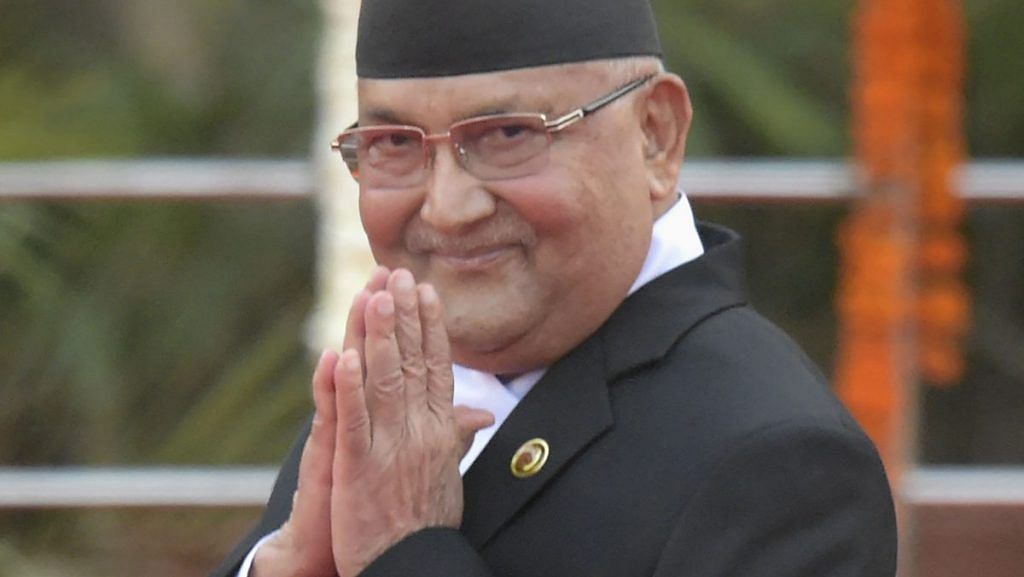New Delhi: Nepal Prime Minister K.P. Sharma Oli Wednesday failed to secure political consensus for a constitutional amendment over its new controversial map following opposition from Madhesi representatives, ThePrint has learnt.
The bill to amend the constitution over the new map, which depicts disputed territories with India within Nepalese limits, requires two-thirds majority in the lower house for passage, followed by a similar vote in the upper house.
But sources said Nepal’s Madhesi parties, which have been demanding greater representation for the community in the Nepalese constitution, have used the bill as a “bargaining chip”. The Madhesi parties have told the ruling party that although they are not opposed to the new map, they want their demands to be first met.
As a result, the Nepalese parliament has put the amendment on hold.
The new Nepalese map seeks to show Lipulekh, Limpiyadhura and Kalapani as part of the country’s territory, with Oli adopting an aggressive stance against New Delhi over the border dispute.
Responding to the Oli government’s bid to pass the bill, official sources said India is “carefully following developments in Nepal”.
“Border issues are sensitive by nature and require trust and confidence to be resolved to mutual satisfaction. We note that there is a larger ongoing debate on this matter in Nepal. It underlines the seriousness of this issue,” a source added. “It also demonstrates the value being attached to relations between Nepal and India.”
Also Read: Mocking Indian emblem, redrawing Nepal map, KP Oli’s adventures are growing
The Madhesi issue
The Madhesi agitation of 2015 has been a sour point in the India-Nepal relationship. In December 2015, during Oli’s first tenure as Prime Minister of Nepal, an agitation by Madhesis against the country’s new constitution led to a massive blockade on the border that restricted the supplies of goods to Nepal.
Kathmandu is believed to have seen the blockade as being unofficially backed by India, which had said then that the constitution of Nepal was flawed because it allegedly did not account for the aspirations of a section of people from the Terai region — the Madhesis, a community with close links to India, and the Tharus.
It was reported last week that the Nepalese government is moving a constitutional amendment bill to revise the map in their national emblem, a move India reportedly saw as “damaging” to Kathmandu’s cause and shrinking the room for bilateral talks on the boundary issue.
Sources told ThePrint that Nepal and India have discussed the matters bilaterally and New Delhi has told Kathmandu that it “will not be forced on to the negotiating table” by such drastic steps.
“Oli’s nationalist mojo seems to have finally ended, paving the way for the positive environment Delhi established as a precondition for dialogue,” said Constantino Xavier, a fellow at the Delhi-based Brookings India, when asked about the amendment being put on hold.
“The delays in the constitutional amendment have also laid bare the political divisions in his party and opposition forces that predated the border crisis… The next few weeks and months will tell us whether he crossed a red line and lost India’s confidence,” he added.
“In any case, whether with his or any other Nepali government, Delhi will have to work hard to find a cooperative solution. The border dispute has now turned into a permanent irritant between both countries.”
The Ministry of External Affairs had stated earlier this month that it will “not accept artificial enlargement of territorial claims”, and urged the Nepalese leadership to “create a positive atmosphere for diplomatic dialogue to resolve the outstanding boundary issues”.
Also Read: Indian politicians, media focusing on ‘Hindu’ Nepal is not only pointless but harmful too
